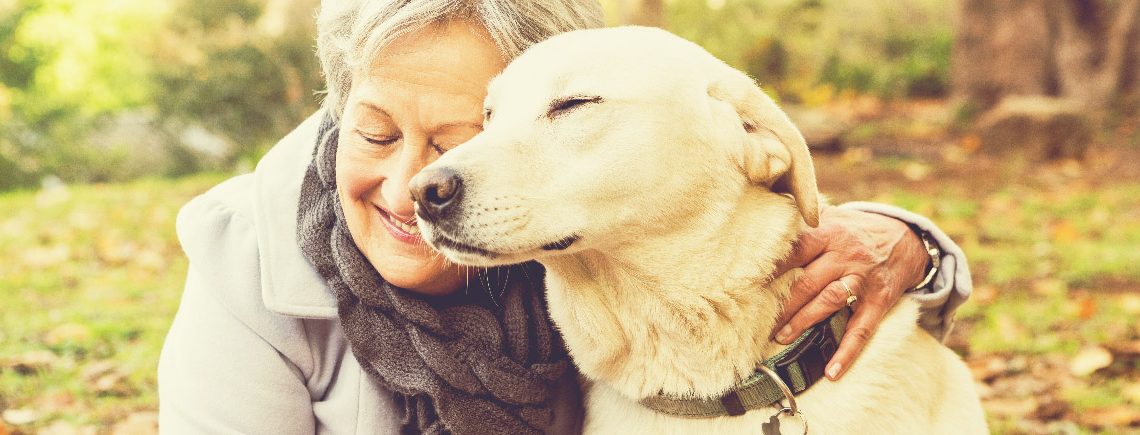5 Ways of Reducing Health Problems Before Your Dog is Senior
As much as we like to think of our dogs as puppies forever, all dogs eventually grow old and enter the senior lifecycle. Dogs are usually considered ‘senior’ when they are typically seven years old, but this depends on the breed too of course; smaller dogs are seen as senior when they are around 11 years old, whereas bigger breeds are senior when they’re around 7-8 years old.
Just like humans, as dogs grow older, they can experience many different health issues, such as arthritis and heart disease. While it may not always be possible to prevent these issues per se, it is possible to help reduce the chances of your dog developing them.
In this blog post, we will look at five things you can do to reduce health problems in your aging dog.

1.Lots of Exercise
Is there anything a dog loves more than going for a good walk? Taking your dog out for daily exercise and keeping him moving is the number one way to ensure he stays fit and healthy, well into his senior years. If you own a puppy, it is recommended he gets at least 15 minutes of exercise a day once he is fully vaccinated, and then add on 5 minutes for every month they get older. If your dog is an adult, the amount of exercise they should be getting is dependent on the breed.
This exercise wheel, developed by the PSDA is a great reference to the needs of different types of breeds and how much exercise they need on average.
Once your dog has reached the senior lifecycle, two short, 10 minute walks a day is sufficient. Go at your dog’s pace and know when he is telling you that he’s had enough.
2. High Quality Diet
It’s important to choose a high quality food for your dog throughout his life, and ensure he is on a balanced and healthy diet.
Throughout your puppy’s first year, it is important to choose a food that will support his rapid growth and development. Every breed is different and some will reach full growth and development from as early as 8 months, while others will continue growing until as late as 24 months of age, so choosing the best food for your puppy will depend on his breed, and expected adult size.
Once your pup reaches adulthood, moving to an adult dog food will provide controlled levels of in levels of phosphorus, sodium, protein and energy which are essential to ensure a balanced diet. In order to determine the unique nutritional needs for your adult dog, you should consider activity levels, breed, whether they’ve been neutered/spayed or have any allergies.
As our canine friends get older, they tend to gradually slow down, becoming less active, while their metabolism will also slow down, making them more at risk of excessive weight gain. As your dog reaches his senior years, he will also need some additional nutrients to help support his aging muscles and joints. In this blog post I want to help you find the best food for your older dog.
If your dog has many health problems as he gets older, it is recommend you to contact a veterinarian or veterinary nutritionist to plan a proper diet. Older pets with specific conditions, like diabetes, kidney failure, or liver disease will benefit from special veterinary diets to assist in the treatment of their conditions. Once your vet has assessed your dog, they may suggest certain dietary supplements.

3. Dental Care
Dogs love exploring the world through the use of their mouth-they play, eat, as well as lift and move objects. Therefore, it’s essential that their teeth and gums are looked after properly and given the correct care throughout his life. Thankfully, there are many ways to ensure your dog’s teeth are kept in good condition and preventing serious issues such as Periodontal disease and gingivitis. Brushing your dog’s teeth regularly with a toothbrush and doggie friendly toothpaste is the most efficient method of keeping their mouth clean and removing any leftover food between the teeth.
Certain toys and treats that are specially formulated to decrease any bacteria in your dog’s mouth can also help with their dental care.
Just as we clean our own teeth every day, it’s important we give the same dental care to our pets too.

4. Brain Games
Make sure to try out new puzzles and commands with your dog throughout their life to keep their brain active. Even when they reach the senior years, it’s still a great idea to teach them new tricks and commands. As with all other activities, keep it short, know when your dog is finished, and be patient-they can learn new tricks, but it may take them a bit longer than when they were a puppy!
5. Regular Vet Check-Ups
Routine veterinary visits help your dog live a long, healthy, and happy life. Annual or biannual exams help nip emerging health problems in the bud and are key to extending your four legged friend’s time by your side.

